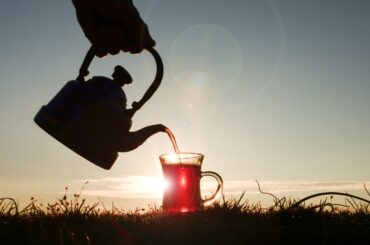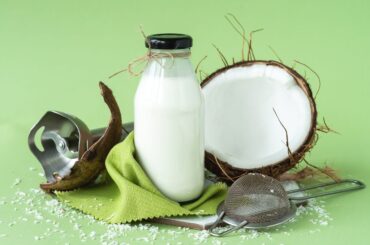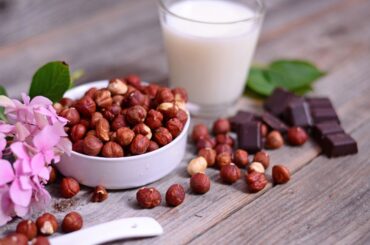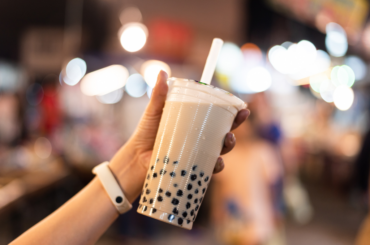Do you want to drink a soothing cup of tea but wonder about the jitters caused by caffeine? Which types of tea offer a flavorful taste without stimulating effects?
In the world of tea drinking, different caffeine-free options exist. These are recommended to be explored to enjoy sipping tea blends without worrying about the caffeine effect.
This article is designed for those who want to discover the world of caffeine-free brews. Introducing the 13 best teas without caffeine will surely elevate your tea-drinking experience.
What Are Caffeine-Free Teas?
Caffeine-free teas are known as herbal teas or tisanes. These beverages are created using dried herbs, fruits, flowers, or plants. Tea with no caffeine has become famous for its beneficial and natural characteristics.
Teas without caffeine are known to promote better sleep and relaxation. Some teas, like chamomile or valerian root, improve the quality of your sleep and help you avoid insomnia. Additional benefits include reducing anxiety and stress among drinkers.
Chamomile Tea
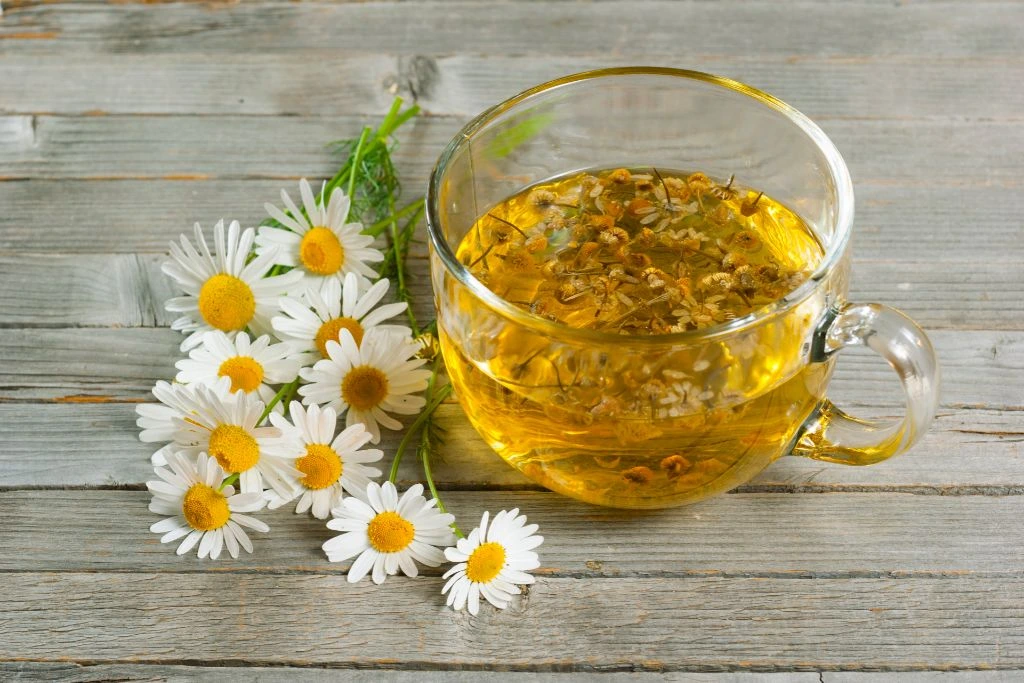
Are you looking for drinks with a soothing effect and a mild flavor profile? Chamomile tea is renowned for its mild taste, which calms and relaxes drinkers. It has a light smell and taste reminiscent of fresh apples and an earthy undertone.
Due to its undeniably great taste and numerous health advantages, it is a tea many people love. Consuming chamomile tea helps promote better sleep and moods and alleviates symptoms of digestive discomfort such as bloating and indigestion.
Preparing your chamomile tea involves a few easy steps. First, you have to prepare your freshly boiled water. Then steep your tea for a recommended period of 5 to 7 minutes. Next, serve it hot in the morning or at bedtime to enjoy its soothing properties.
Peppermint Tea
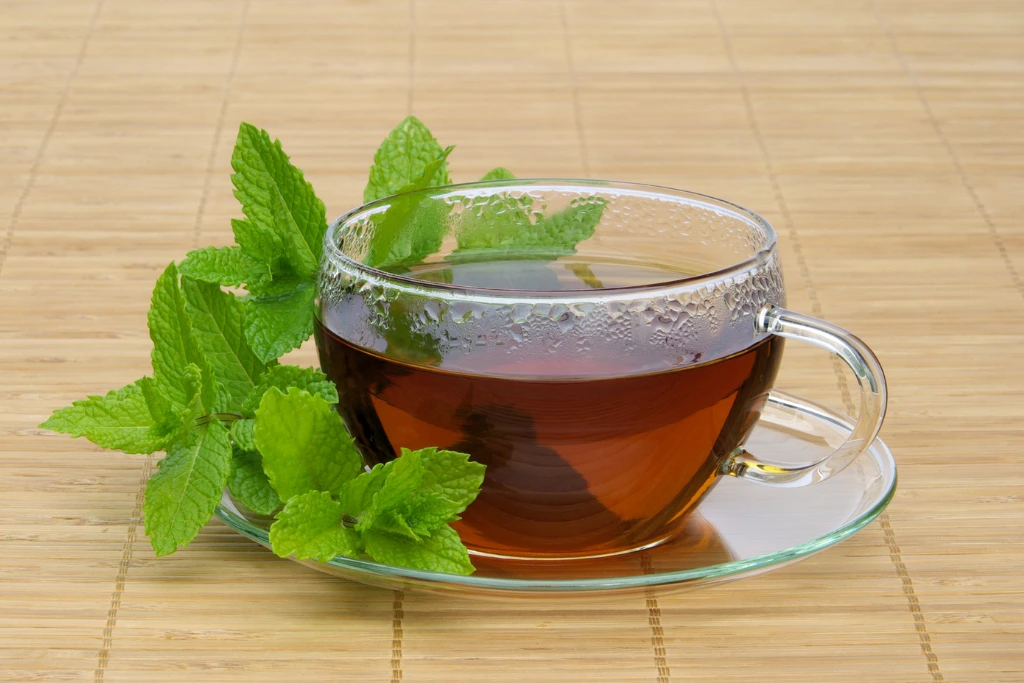
If you love a burst of cool and minty flavors, peppermint tea is your proper selection! Consuming this beverage can make you feel better since it has a menthol-like smell and taste that is known to boost your mood.
Peppermint tea not only offers a delightful taste and aroma but also has a lot of potential health benefits. It is widely used to help with stomach problems such as indigestion, bloating, and gas. This is true due to its menthol compound, which is known to relax the gastrointestinal tract muscles.
Start preparing your perfect brew by gently pouring hot water over a peppermint tea bag or dried leaves in your cup. The steeping period is 3 to 5 minutes, depending on how strong you want your tea to taste. A pure and refreshing peppermint tea can be enjoyed both hot and cold.
Rooibos Tea
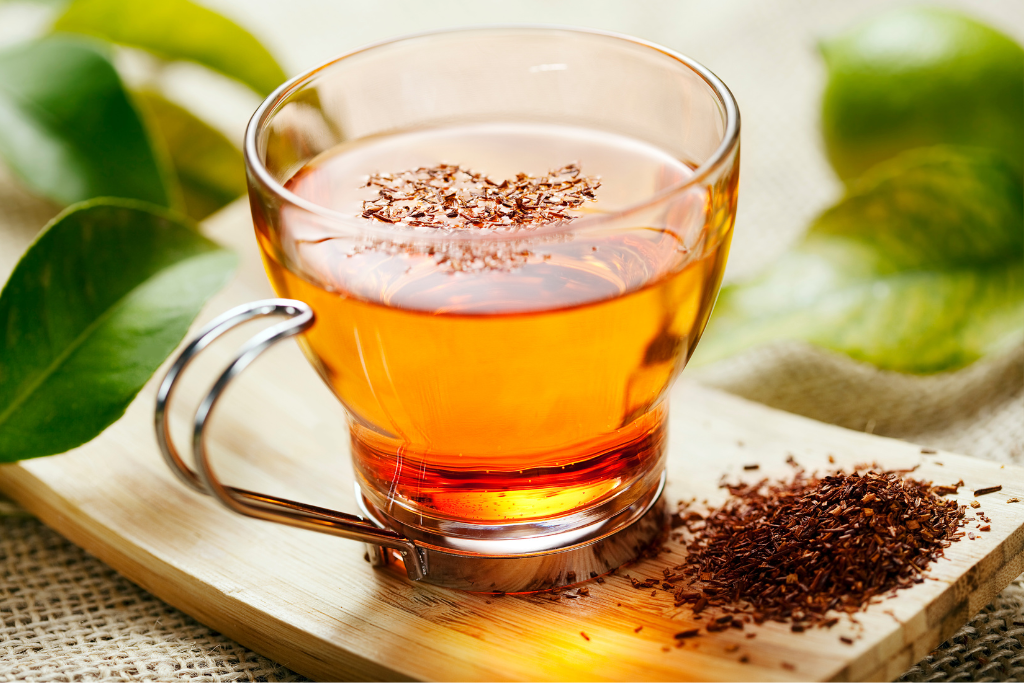
Rooibos tea is a famous, earthy, nutty drink originating in South Africa. It is a tea without caffeine that brings you warm, woodsy notes and a bit of natural sweetness.
As an antioxidant-packed beverage, rooibos tea helps your body fight off diseases since it strengthens your immune system. Regular intake of this tea is a friendly way of protecting your skin’s health due to its anti-inflammatory properties.
Like your other teas, use freshly boiled water and steep rooibos tea bags or loose leaves for an estimated 5 to 7 minutes. You can enjoy it hot or cold, and you can add a refreshing twist by putting a slice of lemon on your tea.
Hibiscus Tea
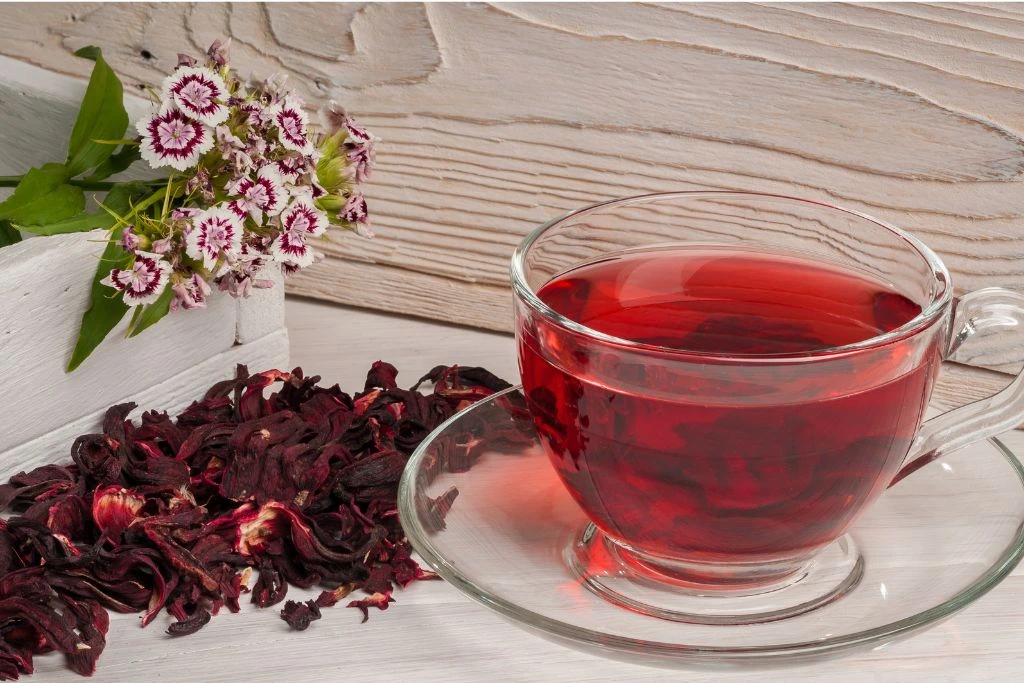
Hibiscus tea is known for having a striking, vibrant red color produced by the infusion of hibiscus petals. It tastes tart and has a sour profile with a floral undertone.
Given its mild antihypertensive effect, this tea has been linked to lowering blood pressure. This also aids in managing hypertension when taken regularly.
If you want it hot, simply steep dried hibiscus petals in freshly boiled water for 5 to 7 minutes, then sweeten to taste if preferred. On the other hand, making a cold version follows the same procedure, but you have to let it cool before adding ice and any sweeteners or citrus.
Lemon Balm Tea
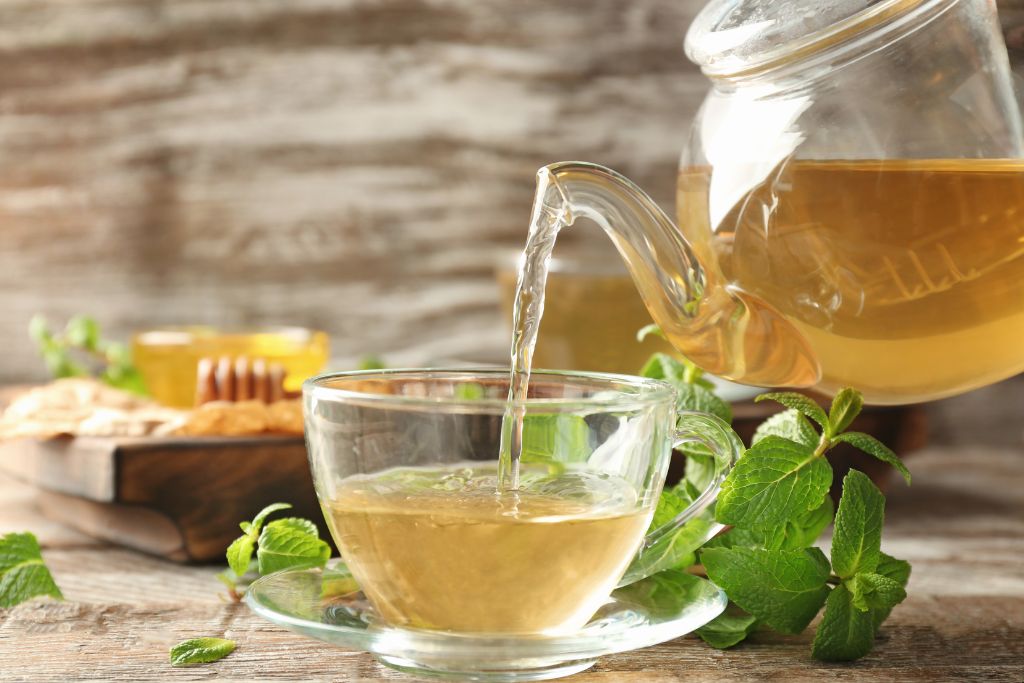
Lemon balm tea is loved and celebrated by many for its citrusy notes and calming qualities. The natural oils in lemon balm leaves contribute to the tea’s refreshing and zesty taste.
More than the taste and the tea’s calming effects, lemon balm tea offers other potential health benefits. It is known to reduce anxiety and help with stress management. This improves sleeping cycles, relieves gastrointestinal discomfort, and relieves mild pain.
When it comes to growing and harvesting lemon balm, this plant thrives in well-drained soil with a lot of sunlight. Gathering their leaves in the morning for more concentrated essential oil extracts is best. You can use the fresh leaves immediately or dry them for later use.
Ginger Tea
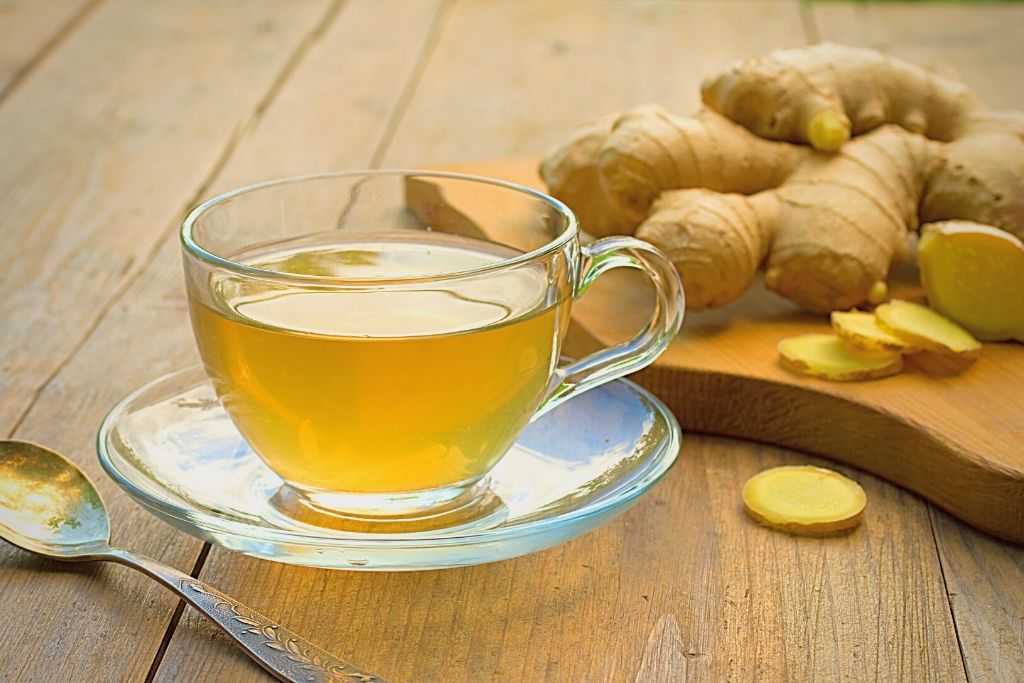
Taking a sip of ginger tea will enable you to experience its warmth and spicy flavor all over your throat and belly. You can count on ginger tea, especially on chilly days, since the spicy kick of ginger makes it a soothing and comforting drink.
Ginger tea is widely used to combat nausea, and many choose to drink this tea to ease the effects of motion sickness and morning sickness naturally. Moreover, it is the best choice of beverage to aid digestion, especially after a heavy meal.
Making homemade ginger tea involves the easy steps of peeling, slicing, and steeping. Peel your ginger root entirely before cutting it into portions. Then steep your tea in 2 cups of water for 10 minutes. You can experiment with the taste of tea by adding natural sweeteners and flavorings, according to your liking.
Lavender Tea
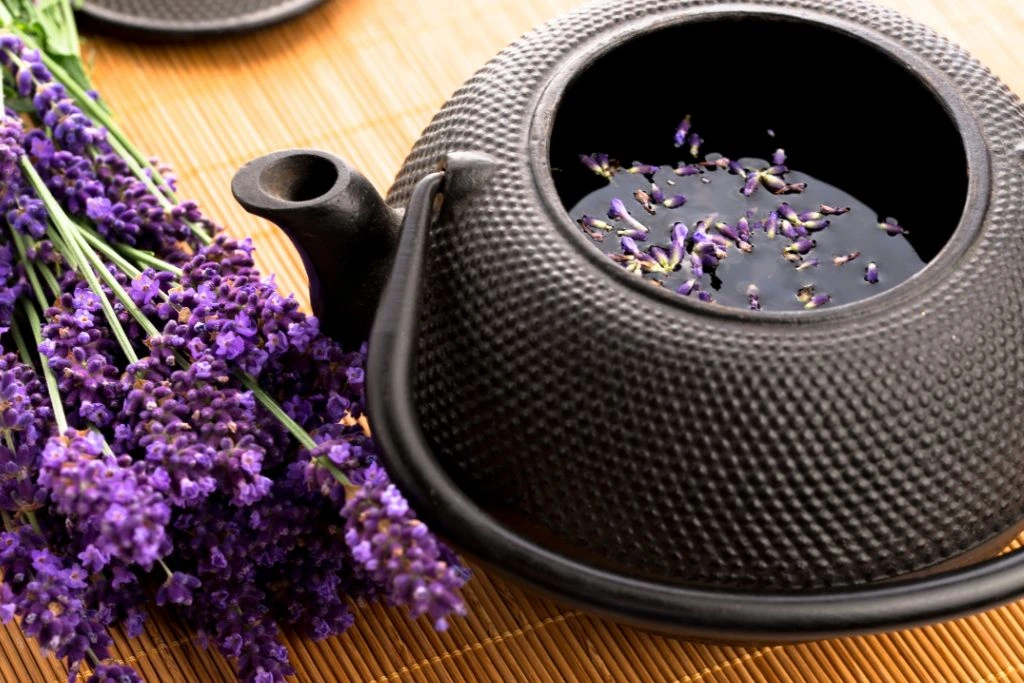
Enjoy the smell of lavender flowers in your drink and feel the soothing, fragrant qualities brought on by lavender tea. This drink is popular among tea enthusiasts due to its calming effect and enchanting floral smell.
Beyond the aromatic properties of lavender tea, this tea offers many potential health benefits. It contains natural elements like linalool, making it a perfect beverage for reducing anxiety and stress.
For a fragrant tea-drinking experience, brew your lavender tea by steeping dried lavender buds in boiling water for 5 to 7 minutes. You can incorporate honey and a slice of lemon to enhance the tea’s flavor further. Like any other tea, you can enjoy it hot or cold and even use it for culinary creations.
Lemongrass Tea
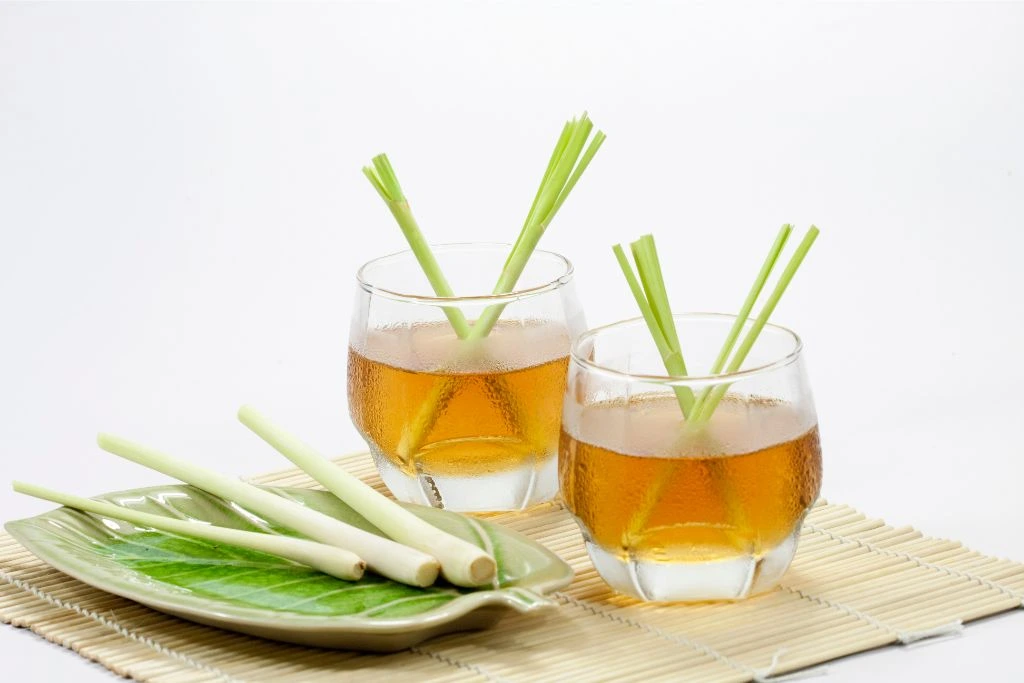
Are you dreaming of sipping the citrusy and refreshing flavor of lemongrass tea? This tea with no caffeine offers a delightful balance of lemon zest with a hint of tea’s natural earthiness. When you drink lemongrass tea, you’ll experience its soothing and refreshing effects on your body.
There’s more to lemongrass tea than its soothing flavor; this beverage has several potential health benefits. One is its function to reduce common digestive discomforts like bloating and indigestion. This herbal brew is widely recognized to help reduce anxiety, further promoting relaxation.
Growing and caring for your lemongrass in the comfort of your own home involves some easy tasks. First, ensure you cultivate your plant in well-draining soil and allow it to get ample sunlight. Once grown, you must cut the stalks, remove the outer leaves, and chop the inner part for tea. Steep the lemongrass in boiled water for a few minutes, then enjoy your healthful beverage.
Nettle Tea
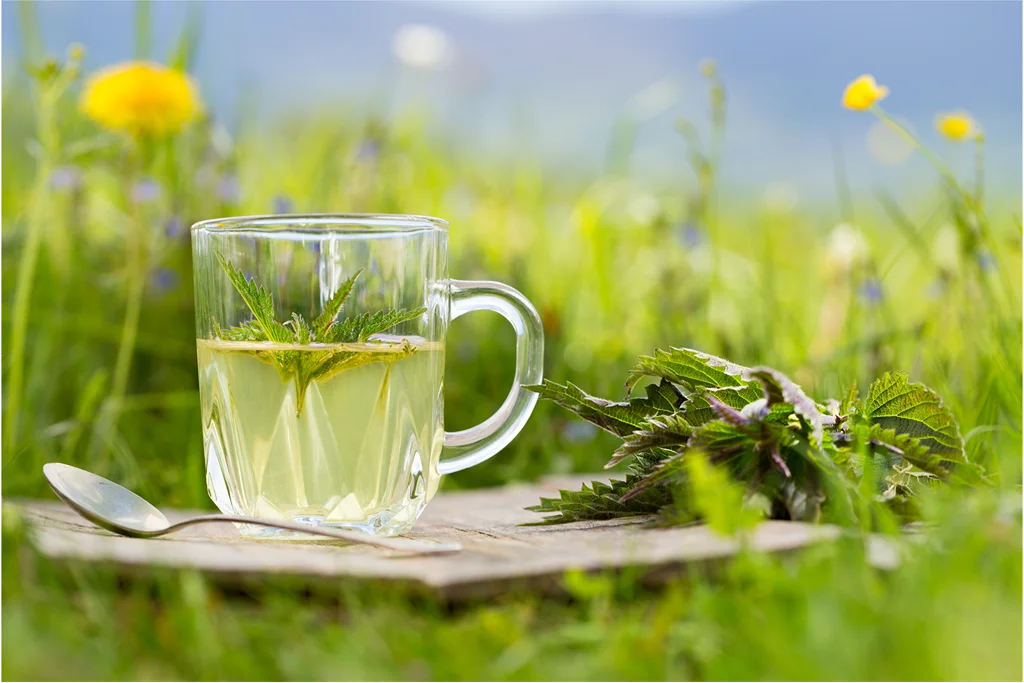
Nettle tea is widely known for its distinct and earthy flavor profile, making it loved by herbal tea enthusiasts. What does tea with no caffeine taste like? Nettle tea is described as having an herbaceous and grassy flavor. It is made from the leaves of the nettle plant.
Are you experiencing sneezing and itchy eyes? Nettle tea can be used for allergy relief because of its antihistamine components. It is also helpful for those with anemia since nettle tea is a good source of iron.
Nettle tea is known to have stinging hairs, which is one of the reasons to exercise caution during harvesting and preparation. It is advised to wear gloves and use scissors to collect young, tender leaves used for tea creation. Rinse and steep your leaves in hot water to enjoy the tea’s beneficial properties.
Dandelion Root Tea
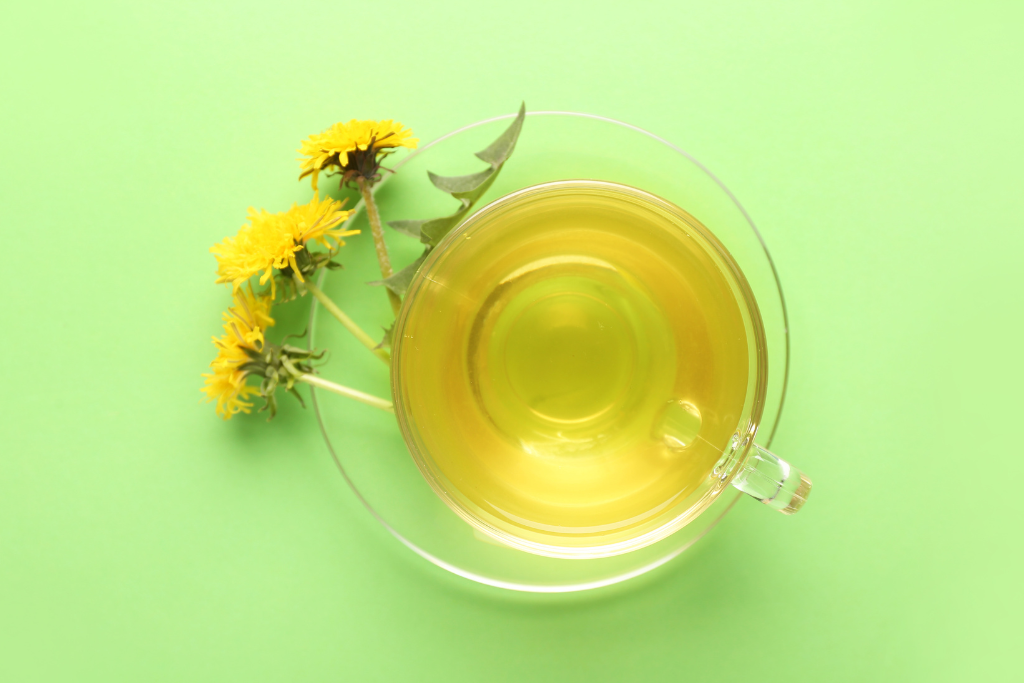
Do you want to discover the unique nuttiness with a hint of bitterness of dandelion root tea? While the flavor of this tea may take some time to get used to, people still appreciate the unique and soothing character this tea has to offer.
Dandelion tea is known to detoxify the liver, further enhancing its capacity to remove toxins in your body. This also supports how you digest your food since consuming this tea will promote the production of digestive enzymes.
Craft your dandelion tea by simmering fresh dandelion roots in boiling water for 10 to 15 minutes, strain any excessive tea leaves, and add natural sweeteners. Enjoy the distinct flavors and health benefits that dandelion root tea promises.
Fennel Tea
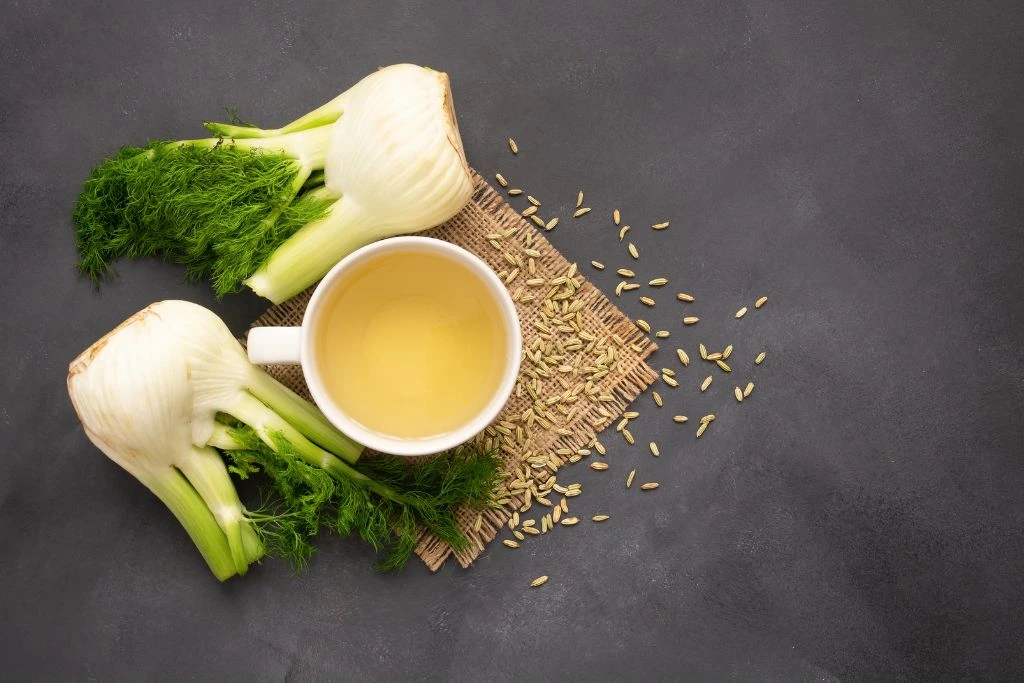
Did you know that a chemical in fennel seeds called “anethole” is responsible for the sweet taste of fennel tea? This tea with no caffeine is loved by many due to its sweet and mild plant taste, perfect for anyone’s palate.
Traditionally, fennel tea is used to heal digestive discomfort with its carminative properties. It relaxes gastrointestinal tract muscles that further support your digestive health.
Making a fennel tea involves easy steps: toast fennel seeds for enhanced flavor, then crush the seeds and steep them in boiling water for about 5 to 10 minutes.
Rosehip Tea
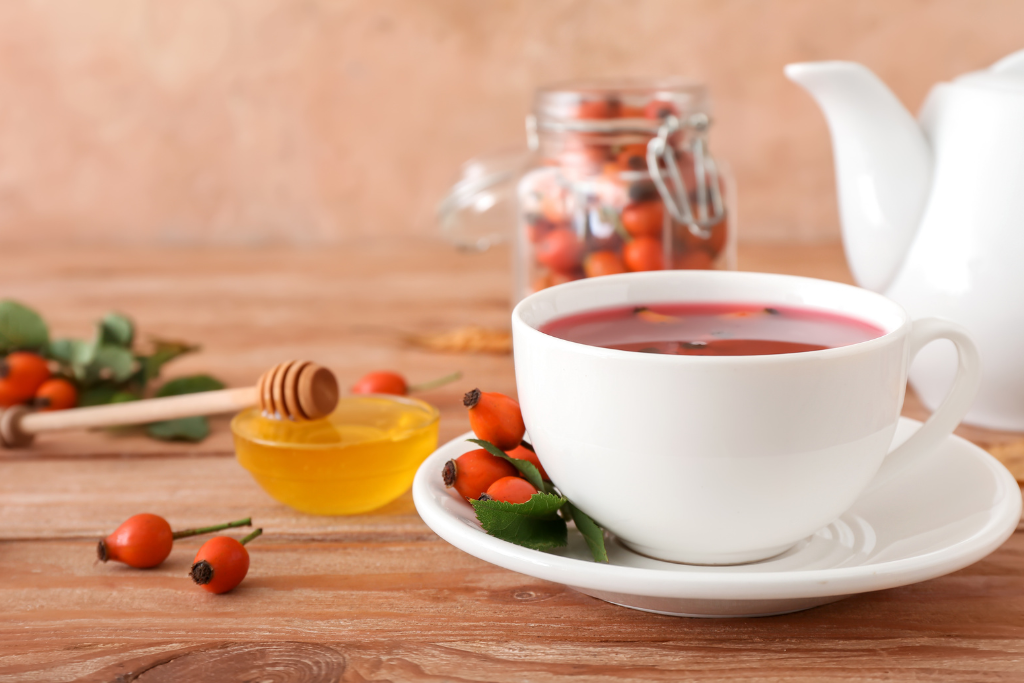
Are you looking for a beverage with a fruity and tangy undertone? When you drink rosehip tea, you’ll enjoy its unique flavor reminiscent of a mix of cranberries and apples.
Rosehip tea, when consumed regularly, can offer you many health advantages. This tea is an excellent source of vitamin C that helps boost your immune system, enhance your skin health, and overall well-being. It is one of the best teas without caffeine that’s good for the heart due to its antioxidant properties.
Rosehips are seasonal and are often best harvested during late summer or early autumn. You must harvest red or orange rosehip before cleaning them, cutting them in half, and removing the seeds. Use natural sunlight or a food dehydrator to dry the seeds before brewing them to make a delightful cup.
Cinnamon Tea
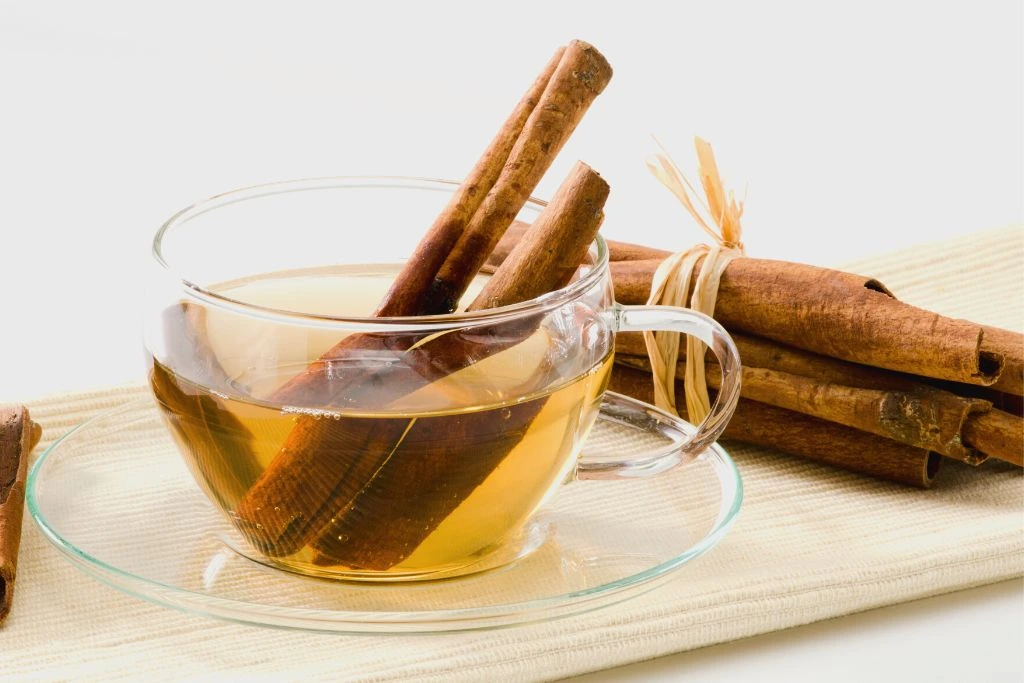
Are you thinking about having a drink perfect for cozy winter evenings? Cinnamon tea is a unique drink that offers a comforting feeling to its drinkers, especially during the cold winter months.
Cinnamon tea provides several potential benefits beyond the comforting feeling it brings. You can rely on this beverage for your health needs since it can help you regulate your blood sugar levels.
Crafting a homemade cinnamon tea requires using either cinnamon sticks or powder. Steeping in boiling water for 8 to 10 minutes is intended for cinnamon sticks, while using a tea infuser is for cinnamon tea brewed from powder. You can customize your drink by experimenting with a slice of orange or honey for a soothing cinnamon tea experience.
FAQs
How Can You Tell If A Tea Is Caffeine-Free?
Always check the ingredients in your tea. You can explore herbal teas since they are considered caffeine-free beverages you can rely on.
What Are The Benefits Of Drinking Caffeine-Free Tea?
Drinking teas without caffeine is known to help you get good quality sleep and avoid the occurrence of jitters or an increased heart rate.
What Is The Healthiest Tea To Drink?
Green tea is considered one of the healthiest teas to drink due to its antioxidant properties, known to boost your immune system and overall well-being.


